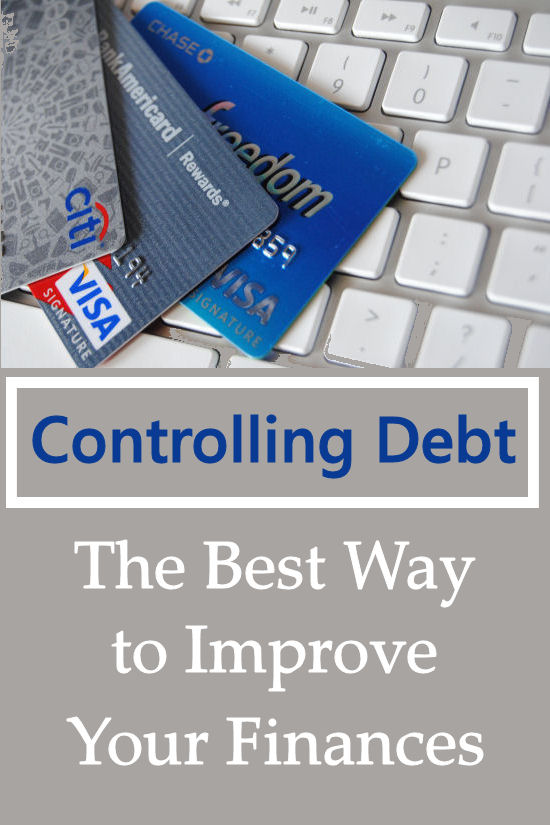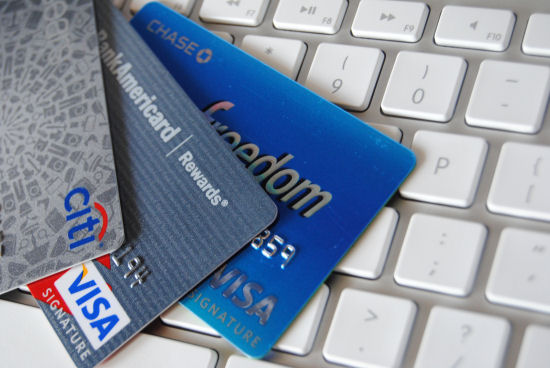Controlling Debt – The Best Way to Improve Your Finances
Debt management is not just a term that financial advisors use when their clients are in trouble.
Controlling debt is the best way to stay away from costly mistakes of spending and borrowing money without keeping in mind factors such as, buying with cash or credit, loan terms, interest rates, refinancing and so on.
On the other hand, there is good debt and bad debt.
Borrowing money to pay for a college education, or buying a home, is considered good debt because you are investing in personal assets that over time are worth the extra expenses and can have lifelong benefits.
However, bad debt comes mostly from indiscriminate credit card usage, particularly among teenagers, but nobody is exempt here.
It is never is too late to learn how to budget, save and avoid costly financial mistakes. I realize that most everyone hates the word, Budget, however, it really is what brings financial success. It is a compass, a guiding light, a path towards where you need to go to achieve what you want in life. If you were going on a trip by car to somewhere you had never been before, would you bring a map? Of course you would. Otherwise, you would get lost and end up in frustration and wasted money and time. A budget is a map that leads you to where you want to go financially in your life. If you do not have one, you will surely regret it sooner or later.

Financial planning is one of the best things you could ever teach your children as they are growing up.
Remember, that vacations, consumable items, and similar things are considered bad debt, especially if you are charging your credit card instead of applying for a loan, or getting money from the equity built into your home to pay for the things you need.
But when it comes to necessary outlays, everything depends on your approach to managing your finances adequately to repay the money you owe. Checking success histories of wealthy people you will find out that many of them borrowed money to reach the status that they actually have, but controlling their expenses instead of sinking into bad credit situations was one of their secrets.
Determining whether you can pay for goods over the next few months or year or not, makes sense in controlling your debts. If you borrow money or buy items with the idea that credit is for acquiring what you cannot afford with cash, you are digging your own road towards ruin. The larger your obligations with no solid logical basis, the greater your chances are for financial disasters in the future.
You can use this to your advantage, managing amounts owed over time. If you have not set up a budget for your household expenses or your office operation, begin tracking your spending for the next few weeks. Knowing where your money goes makes it easier to manage.
Most people know where their money comes from, but very few know where it goes after receiving their paycheck. Subtracting taxes and all your monthly fixed and variable expenditures, you can have a better idea on how much money is available for paying off your creditors. Consider fixed expenses and all the payments that you have on a regular basis, such as food, utilities, transportation, insurance, housing, and so on. Take your income and subtract these amounts and that leaves you with the cash you have to pay off your indebtedness.
No matter how important entertainment is for you, this and other things such as restaurants, trips, or shopping, must be watched closely to control spending efficiently. Once you determine the amount of money available for paying off your liabilities, then you will know if you can afford to borrow money for getting assets that increase in value, or in other words, good debt.
Always keep in mind the real cost of credit cards, and avoid purchasing items that depreciate in value. If they are absolutely necessary, get them, but use cash instead of credit if possible. The same holds true for consumable items – buy with cash, or if you have to use plastic, be sure to pay off the balance each month. Controlling debt is easily achieved by controlling your expenses, and following a personal budget, which in the long run helps you to keep or improve your Credit Score and your prospects in life.

